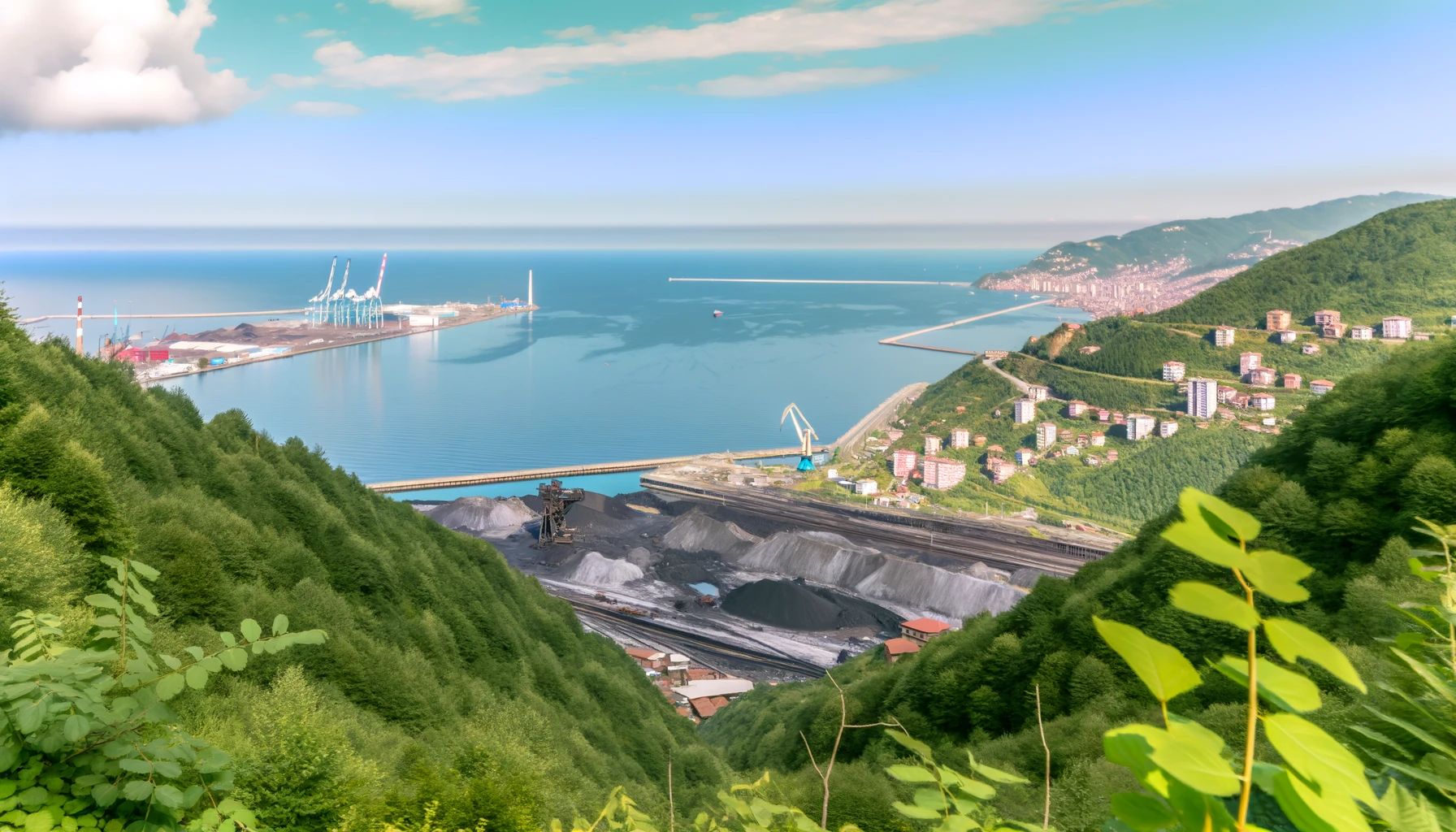Discover Uşak: A Journey Through History, Industry, and Culture in Turkey
Welcome to Uşak, a captivating city nestled in the heart of Turkey’s Aegean Region. Known for its rich history, vibrant culture, and robust industrial heritage, Uşak offers a unique blend of historical treasures and modern development. From its ancient roots to its contemporary achievements, Uşak is a city that embodies the essence of Turkey’s diverse heritage. In this guide, we’ll explore Uşak’s historical significance, economic evolution, geographic features, and cultural highlights, inviting you to discover why this city is a gem in Turkey’s crown.
History of Uşak: From Ancient Civilizations to Ottoman Rule
Ancient Beginnings and Historical Significance
Uşak’s historical narrative is as diverse as it is fascinating. The city, located at the crossroads of the Central Anatolian Plateau and the Aegean Region, has been inhabited since ancient times. During the seventh century BC, the Phrygians and Lydians were among the earliest organized states to rule over the region. The discovery of the Karun Treasure in 1965—a collection of artifacts dating back to the Lydian civilization—highlighted the area’s historical significance and revealed the advanced civilization that once thrived here.
Phrygian and Lydian Influences
The Phrygians, known for their impressive fortresses and unique artistic styles, ruled the eastern portion of Uşak, while the Lydians, famous for their wealth and the invention of coinage, controlled the western parts. The region’s history was further shaped by the Persian Empire, which conquered Lydia in the 6th century BC, and later by Alexander the Great and his successors in the 4th century BC. This rich historical tapestry laid the groundwork for the diverse cultural influences seen in Uşak today.
Roman, Byzantine, and Ottoman Eras
Following the Hellenistic period, Uşak came under Roman rule, followed by Byzantine control. The Seljuks and Germiyanids then ruled the region before it fell under Ottoman sovereignty in 1429. The city’s name, Uşak, meaning “servant” in Turkish, reflects its historical transitions and the various powers that have shaped its destiny. Uşak’s strategic importance continued through the Ottoman era and into modern Turkey, where it became a provincial capital in 1953.
Economic Evolution: From Carpets to Modern Industry
Uşak’s Carpet Legacy
One of Uşak’s most enduring legacies is its tradition of carpet weaving. Uşak carpets, also known as Holbein carpets after the 16th-century painter Hans Holbein the Younger, gained international acclaim for their intricate designs and high quality. The city’s carpets, renowned for their distinctive patterns and craftsmanship, have been a significant part of its economy for centuries. Today, Uşak continues to be a major center for both hand-woven and industrial carpets, maintaining its historical prominence in the textile industry.
Industrial Development
Uşak’s economic landscape underwent significant transformation in the 20th century. The city was the site of Turkey’s first urban electricity network and the first factory of Republican Turkey, a sugar refinery established by local entrepreneurs. This tradition of industrial innovation persists, with Uşak housing two industrial zones that support a range of manufacturing activities. The city’s strategic location and robust infrastructure have made it a key player in Turkey’s industrial sector.
Agricultural and Commercial Growth
In addition to its industrial advancements, Uşak has a vibrant agricultural sector. The city benefits from a climate that supports diverse agricultural production, contributing to its economic stability. Uşak’s commercial activities, including its historical trade connections with Europe, continue to play a vital role in its economy.
Geography and Climate: Understanding Uşak’s Natural Environment
Geographical Features
Uşak is situated at an elevation of approximately 1,200 meters above sea level, surrounded by rolling hills and fertile plains. The city consists of 29 neighborhoods, including Kurşunluk and Muharremşah, each offering a unique glimpse into Uşak’s local life. The city’s location at the intersection of the Central Anatolian plateau and the Aegean Region provides a diverse and scenic landscape that attracts both residents and visitors.
Climate Characteristics
Uşak experiences a Mediterranean or oceanic climate, characterized by cool, wet winters and hot, dry summers. The city’s climate is influenced by its elevation and geographical position, leading to significant seasonal variations. Winter temperatures can drop as low as −19.9 °C (−3.8 °F), while summer highs can reach up to 41.9 °C (107.4 °F). This climate supports a variety of outdoor activities and contributes to the region’s agricultural productivity.
Cultural and Natural Attractions: Exploring Uşak’s Highlights
Uşak Museum of Archaeology
The Uşak Museum of Archaeology offers a comprehensive look at the region’s rich history. The museum houses artifacts from various periods, including items from the Phrygian, Lydian, and Roman eras. Visitors can explore exhibits that highlight Uşak’s historical significance and its role in the broader context of Anatolian civilization.
Uşak Carpet Museum
For those interested in the city’s famed textile heritage, the Uşak Carpet Museum provides an in-depth look at the art of carpet weaving. The museum showcases a range of traditional Uşak carpets and kilims, offering insights into the techniques and designs that have made these textiles renowned worldwide.
Natural Attractions
Uşak’s natural beauty is showcased through several scenic locations. The Ulubey Canyon, a stunning natural formation, attracts visitors with its dramatic landscapes and opportunities for outdoor exploration. The district of Banaz is notable for its agricultural production and lush forests, adding to the area’s charm and appeal.
Twin Cities and International Relations
Global Connections
Uşak maintains a network of international relationships through its twin city partnerships. These connections foster cultural exchange and collaboration with cities such as Offenbach in Germany, Astana in Kazakhstan, Besni in Turkey, and Charleroi in Belgium. These partnerships reflect Uşak’s commitment to global engagement and cultural diplomacy.
Conclusion: Experience the Charm of Uşak
Uşak is a city that beautifully blends historical depth, cultural richness, and industrial innovation. Whether you’re exploring its ancient ruins, admiring its renowned carpets, or enjoying its natural landscapes, Uşak offers a unique and enriching experience. For those planning a visit, Uşak provides a fascinating glimpse into Turkey’s diverse heritage and modern achievements. To learn more about Uşak and other incredible destinations in Turkey, visit Travel Turkey.
Latest Update: Aug 4, 2024
Your Content Goes Here
TAGS: Uşak agricultural production, Uşak attractions, Uşak carpets, Uşak climate, Uşak cultural sites, Uşak economic history, Uşak geographical features, Uşak historical significance, Uşak history, Uşak industrial heritage, Uşak museums, Uşak natural beauty, Uşak tourism, Uşak travel, Uşak twin cities
The Region of Uşak
A brief summary of the key points in this article.
Latest Travel Guides
Weather Today in Uşak, Turkey
Location: Uşak Province
Temperature: -2.64°C
Condition: Few clouds
















